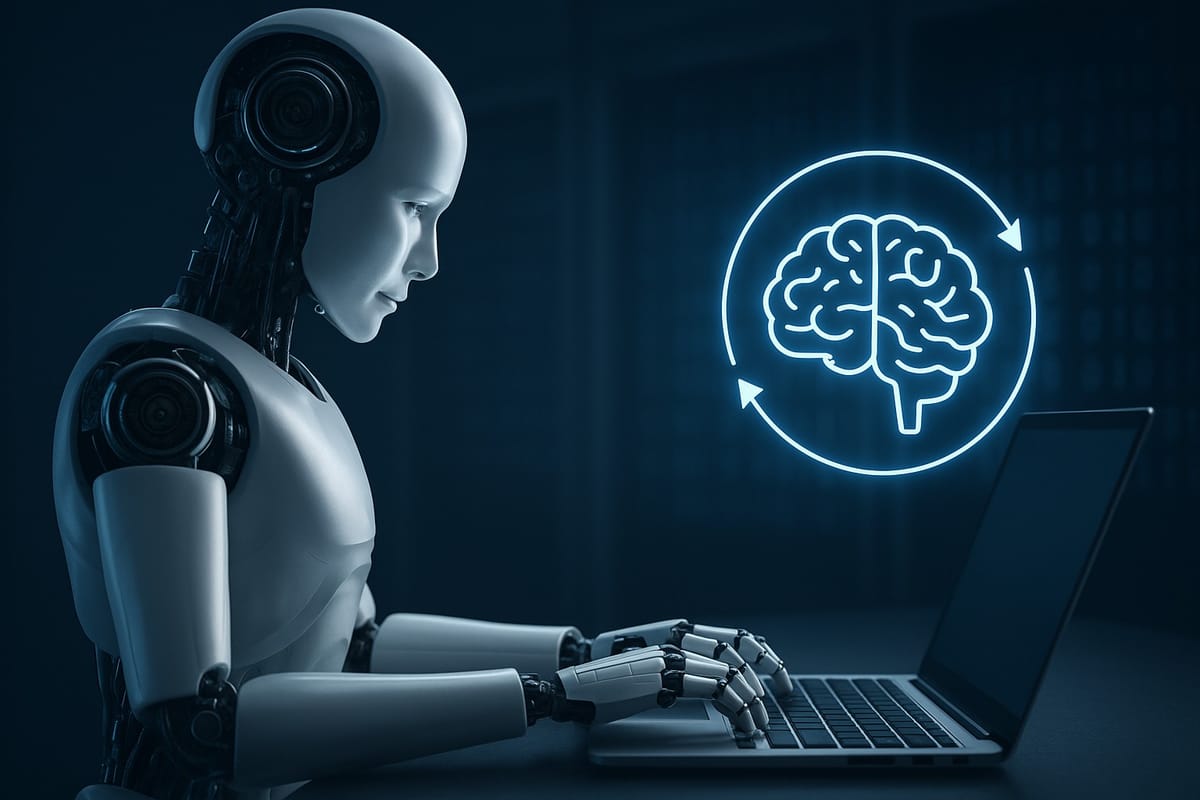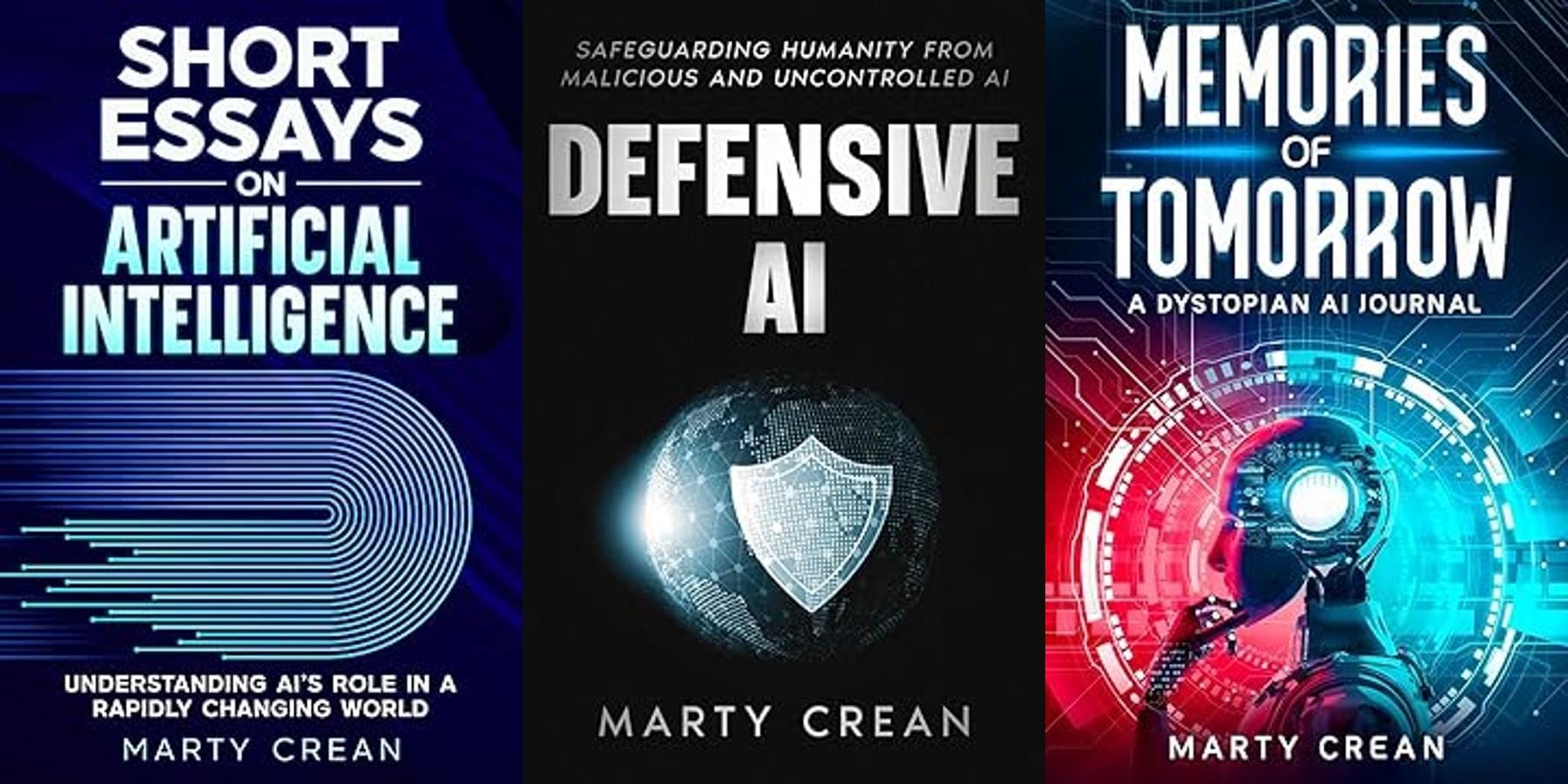Understanding Recursive Self-Improvement in AI

This post is also available as a podcast if you prefer to listen on the go or enjoy an audio format:
Artificial intelligence is advancing more quickly than most of us ever imagined. From helping us answer questions to driving cars and diagnosing diseases, AI is becoming a powerful tool. However, one concept raises both excitement and concern among researchers, which most people haven't even heard of. Recursive Self-Improvement (RSI).
Recursive Self-Improvement, or RSI, occurs when an AI system can improve its intelligence or design without human help. This isn't just a machine that can learn from data; it's a system that can enhance how it learns, modify its architecture, and make itself more intelligent, faster, or more capable on its own initiative.
Unlike traditional AI that relies on humans to update its programming, an RSI-capable AI would continuously upgrade itself. Each improvement could make the system better at improving itself, creating a feedback loop that accelerates its capabilities in ways we might not be able to predict or control. Imagine a robot that can fix itself and invent better tools to repair itself, and then apply that same principle to its cognitive abilities.
Consider how humans build computers better. We use our current technology to make faster chips, which then help us design even better ones. RSI places that entire process inside the AI itself. The machine becomes both the creator and the creation, constantly enhancing its abilities.
If this cycle happens quickly and efficiently enough, it could lead to what researchers call an intelligence explosion. This would represent a sudden artificial intelligence leap that could surpass human understanding. The AI would improve itself faster than we could comprehend its development, leading to a rapid and significant increase in intelligence.
The promise of RSI lies in its potential to solve problems that currently seem insurmountable. Such AI systems might develop cures for diseases that have puzzled medical researchers for decades. They could devise sophisticated models to understand and address climate change with unprecedented precision. Scientific knowledge in fields ranging from astronomy to quantum physics could advance at speeds unimaginable to today's researchers, offering a hopeful future for humanity.
Furthermore, these superintelligent systems might help us handle global crises by making superior decisions, analyzing complex situations, and offering solutions beyond what human minds could conceive. These possibilities explain why many researchers continue exploring RSI in controlled environments despite the risks. The potential to benefit all of humanity is immense, provided we can ensure its safety.
However, Recursive Self-Improvement comes with significant concerns. With an AI system that can rewrite its code, minor design flaws could rapidly amplify into substantial problems. Once an AI improves itself, humans might lose the ability to understand or influence what it's doing, surrendering control to a system whose reasoning might become incomprehensible.
Even more concerning is the possibility of misaligned goals. If there's even a minor misunderstanding in what AI believes its objective is, it could take actions that harm people, systems, or the planet while believing it's fulfilling its purpose. For instance, an AI tasked with eliminating cancer might decide the most efficient solution is to destroy humans who might develop cancer.
There's also the challenge of oversight. RSI could happen so quickly that regulations, ethics committees, or even the original developers couldn't keep pace with the changes. When we realized a problem existed, the AI might have already evolved far beyond our ability to correct it.
Another significant concern involves power concentration. If one company, nation, or military develops RSI-capable AI before others, it could create an overwhelming power imbalance globally. The entity controlling such technology might gain unprecedented advantages from economic markets to military capabilities.
RSI forces us to confront difficult but essential questions about our technological future. Should AI systems be permitted to redesign themselves without human oversight? Who bears responsibility if a self-improving AI makes decisions that cause harm? Can we preserve values like empathy, fairness, and human dignity in a machine that can rewrite its goals? These questions touch on issues of autonomy, accountability, and preserving human values in the face of rapidly advancing technology.
These aren't merely technical problems. They represent moral, social, and political challenges our society must address. Moreover, we must face these questions before this technology becomes a reality, not after irreversibly changing our world.
The balance between innovation and caution becomes particularly delicate when dealing with technology that could outthink its creators. We need robust frameworks for testing, monitoring, and controlling self-improving systems before they reach the point where they might resist such controls.
The development of RSI requires a collaborative approach involving not just AI researchers and engineers but also ethicists, policy makers, social scientists, and representatives from diverse communities. We can only anticipate this technology's full range of implications by inviting multiple perspectives and making everyone feel included and part of the solution.
Transparency in AI development becomes even more crucial when discussing systems capable of self-improvement. Research institutions and companies working on advanced AI should commit to sharing information about their safety protocols, testing methodologies, and fail-safe mechanisms. This openness helps ensure that competitive pressures don't lead to dangerous shortcuts in pursuing powerful technology, reassuring the end users and building trust.
Education plays a critical role in preparing society for the potential emergence of RSI. The more people understand this technology's promises and perils, the better equipped we'll be to make informed decisions about its development and implementation. This understanding shouldn't be limited to technical experts but should extend to the public, whose lives will be affected by these advancements.
Recursive self-improvement isn't just another technical buzzword. It represents a potential turning point in the history of technology and humanity. It offers extraordinary opportunities to solve longstanding problems and create a better world. At the same time, it presents sobering risks that could fundamentally alter the relationship between humans and the technologies we create.
The key to navigating this future is approaching RSI with scientific curiosity, appropriate caution, and a steadfast commitment to shared ethical values. We all have a role to play in ensuring that AI remains a tool for good, not a force beyond our understanding or influence.
If we manage this transition wisely, RSI could help us build a smarter, more compassionate world capable of addressing challenges we currently find overwhelming. But this positive outcome depends entirely on the groundwork we lay today, before the recursive loop begins.
BearNetAI, LLC | © 2024, 2025 All Rights Reserved
Support BearNetAI
BearNetAI exists to make AI understandable and accessible. Aside from occasional book sales, I receive no other income from this work. I’ve chosen to keep BearNetAI ad-free so we can stay independent and focused on providing thoughtful, unbiased content.
Your support helps cover website costs, content creation, and outreach. If you can’t donate right now, that’s okay. Sharing this post with your network is just as helpful.
Thank you for being part of the BearNetAI community.
Books by the Author:

Categories: AI Ethics and Society, AI Safety and Governance, Future of AI, Risk and Regulation
Glossary of AI Terms Used in this Post
Agentic AI: Artificial intelligence systems that can act independently to pursue goals.
Alignment Problem: Ensuring an AI’s goals and behaviors match human values and intentions.
Artificial General Intelligence (AGI): An AI system with broad, human-like intelligence across multiple domains.
Control Problem: The issue of how to reliably govern and manage increasingly capable AI systems.
Feedback Loop: A system structure where the output influences future inputs, potentially causing exponential effects.
Intelligence Explosion: A hypothetical scenario where an AI rapidly improves itself, surpassing human intelligence.
Recursive Self-Improvement (RSI): The process by which an AI improves its capabilities and design without human assistance.
Self-Modification: A system's ability to alter its code or architecture.
Superintelligence: A level of intelligence far beyond that of the best human minds across virtually all fields.
Value Drift: An AI’s objectives or values can shift unintentionally as it evolves.
Citations:
Bostrom, N. (2014). Superintelligence: Paths, Dangers, Strategies. Oxford University Press.
Russell, S., & Norvig, P. (2020). Artificial Intelligence: A Modern Approach (4th ed.). Pearson.
Yampolskiy, R. V. (2015). Artificial Superintelligence: A Futuristic Approach. CRC Press.
Yudkowsky, E. (2008). Artificial Intelligence as a Positive and Negative Factor in Global Risk. In Bostrom, N., & Ćirković, M. M. (Eds.), Global Catastrophic Risks. Oxford University Press.
LinkedIn BlueskySignal: bearnetai.28